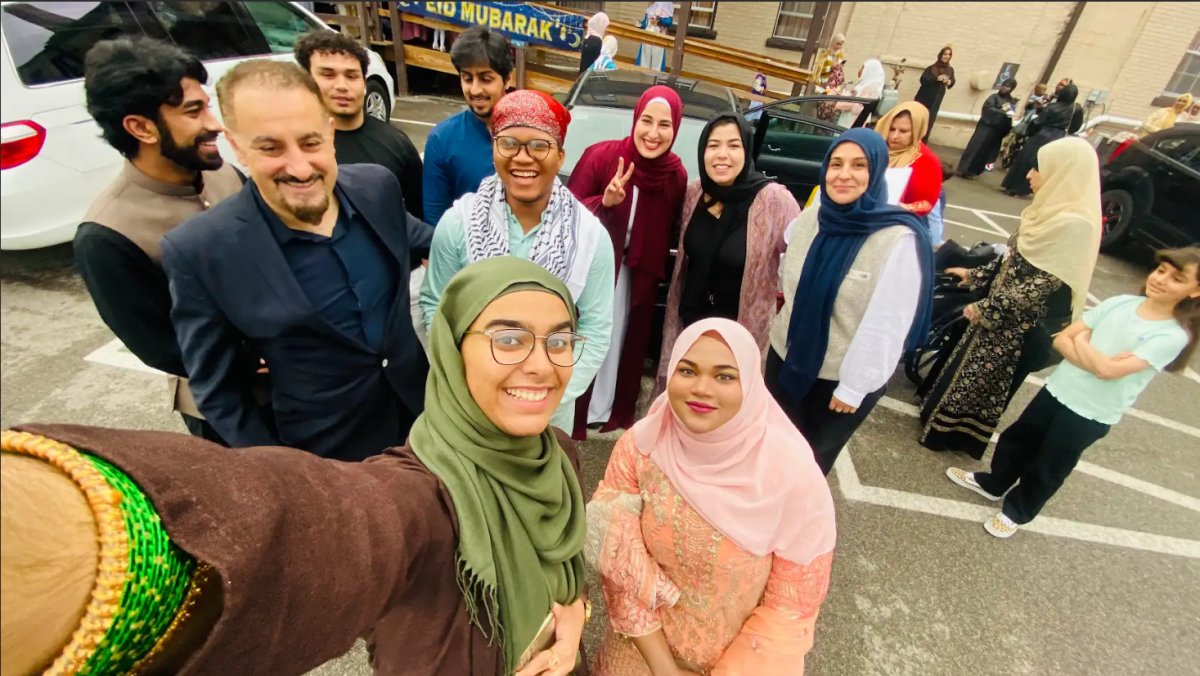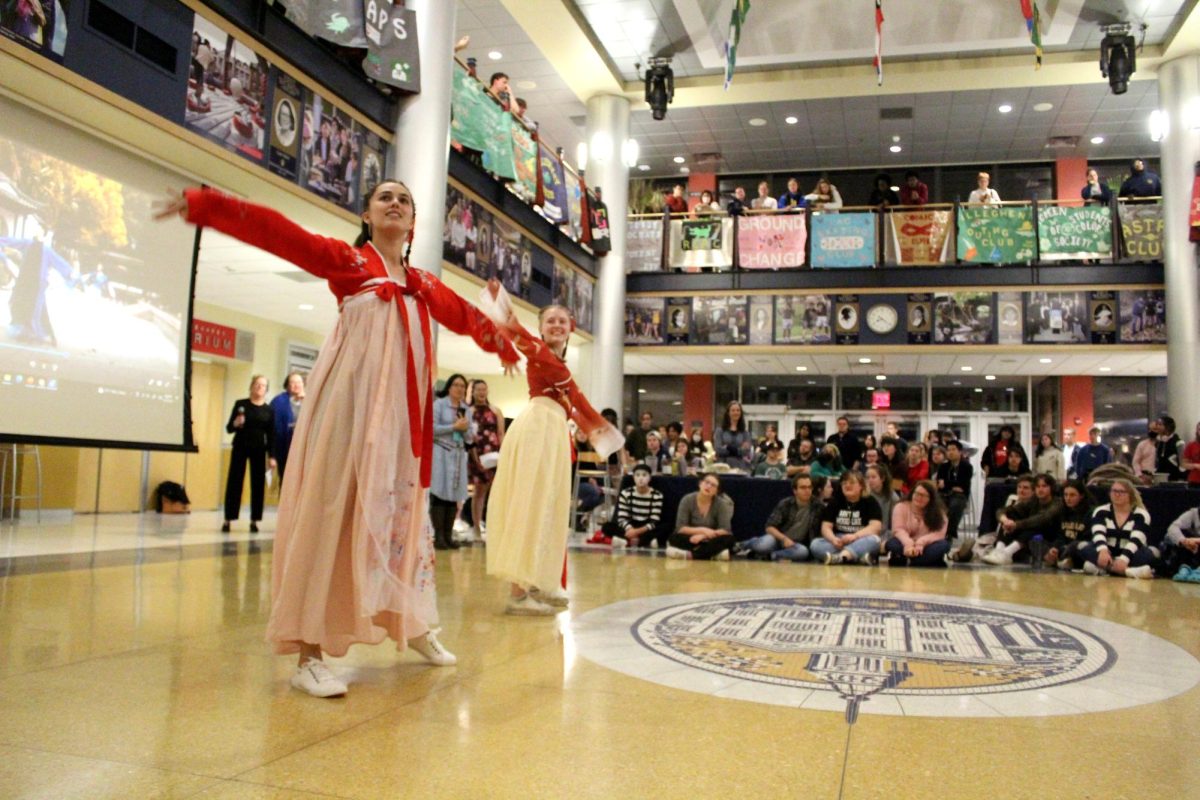“Madan Sara” – a film about the tireless efforts of the Haitian women who distribute food throughout the nation’s economy – was shown inside the Quigley auditorium on April 17.
The screening took place on account of Assistant Professor of Business and Economics Aisha Yusuf, as part of her ECON 438 class “Gender and Economics.”
The screening was also open to anyone interested, and a small group of students and faculty showed up to enjoy the film.
“I thought it was very insightful to see the daily lives of the Madan Sara women,” said Jackie DiGiacomo, ’26, who is in Yusuf’s class.
“It is so difficult for them to make a living when they have such little support from the government.”
The Madan Sara is a bird native to Haiti, known for its colorful plumage and birdsong.
“It’s also the name lovingly used to refer to the women who serve as the economic bridge between buying produce and goods in rural areas and then bringing them to urban marketplaces to either sell themselves or distribute to other merchants unable to make the trip into the interior themselves,” according to a February news post from Medgar Evers College.
The 2021 documentary was filmed by director Etant Dupain and showed various women’s accounts of the market, as well as their own livelihood.
“Madan Sara” won multiple documentary film awards, including the Berlin Indie Film Festival Best Director and Short Documentary and the Independent Short Awards Gold Award Best Women Short.
In one-on-one interviews paired with shots of vibrant foods and markets, the women told their stories. Each started with working from an early age and told their account of a hardship, violence and a risk to their lives.
As well as portraying the role of women in the economy, the film also examines the relationship between the government and the people by pointing out the complete lack of assistance for the markets.
“The women there are the backbone of the economy,” Yusuf said. “Many of them don’t get recognized so I felt it was a good way to segue into that and also allow students to see firsthand what it looks like (in the working community).”
Yusuf felt that the film would be a good fit for the class as they had spent many sessions discussing the various challenges that women face from the divide between the job that they do in the labor market versus the job that they do at home. It was important to show students what women have to face just to be on par with what men have and deal with things such as gender wage gaps, Yusuf said.
“And so talking about the challenges that women face, I decided to show the movie just to show them what it’s like in Haiti for women to do so much in society,” Yusuf said. “It showcases their resilience and intercommunal activity, and for them to do all of that and in most cases to not be recognized.”
The “Madan Sara” screening was followed by a Q&A session in which audience members were joined by one of the film’s producers, Lulaine Childs.
Childs was originally meant to attend the screening in person, but due to unforeseen circumstances he joined via Zoom.
One question that stood out to Yusuf was about the migration of students from Haiti. A part of the film showed that when students graduate from school they migrate to other places due to lack of opportunities and resources in Haiti. An audience member asked why this was, and if there was anything the government could do to bring people back in order to better the county.
Child’s response pointed out that the fact that people migrating does not necessarily mean they don’t want to be in their county, but rather that there are limited resources on top of having to look after their families. Childs explained that staying might prevent them from pursuing certain opportunities, so people leave not in the spirit of abandoning the country but rather for access to resources that will help their family.
Childs also spoke to the filmmaker’s and producers’ desire for the film to appear very raw and authentically capture the everyday life of the Madan Sara women.
Yusuf wanted students and audience members to have the opportunity not only to familiarize themselves with the topic, but also to be able to ask questions and inquire about things happening in different parts of the world.
“There’s so many things going on in the world, and sometimes you think you know but you don’t,” Yusuf said. “I felt like showing the film would show them something that perhaps they had never seen, and I got the same feedback from the students. Some of them were shocked and very surprised by what they saw, but very grateful to see that.”
Categories:
“Madan Sara” showcases economic power of Haitian women
Story continues below advertisement
2
Tags:
More to Discover
About the Contributor

Aubryanna Snyder, Features Editor
Aubryanna Snyder is a sophomore from Aliquippa, PA. She is a Political Science major and Journalism minor and is also on the Track and Field team. This is her second semester on staff and first semester as Features Editor. She has studied journalistic writing since her freshman year of high school and has always enjoyed getting to help people tell their stories. When she’s not writing or running, she enjoys hot caffeinated drinks and long T.V. binges!








